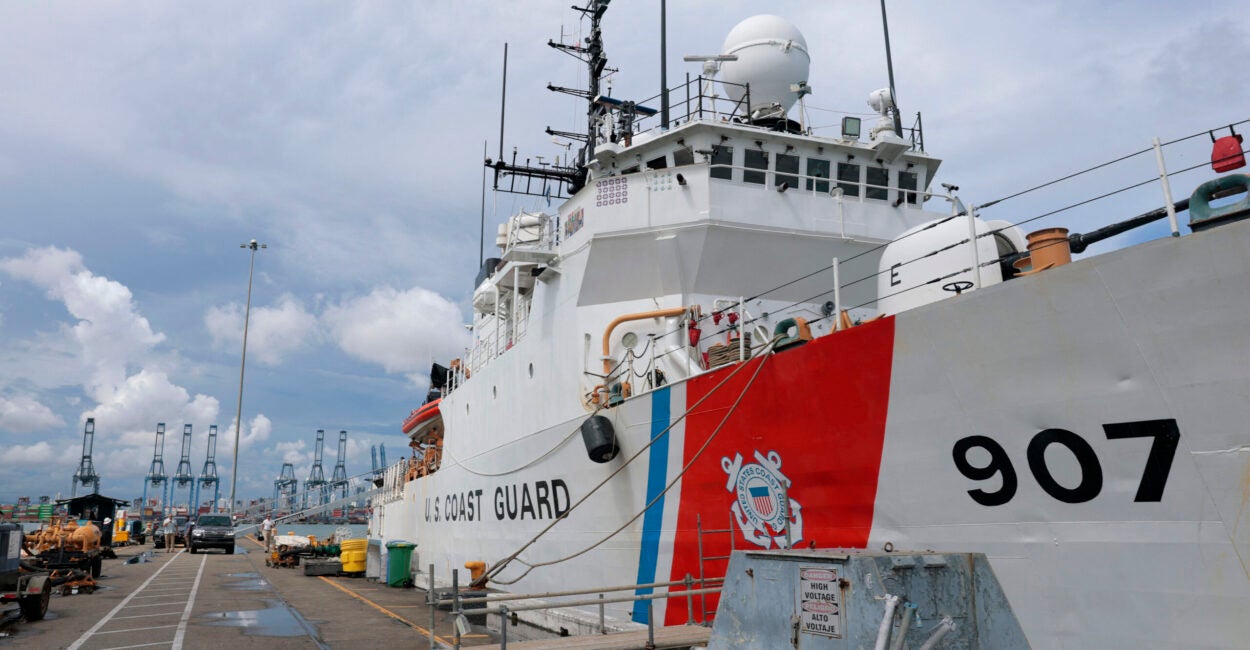Where Sovereignty Sinks

If a foreign government stole $1 billion from the U.S. economy, there would surely be a serious reaction. But Chinese fishing fleets could steal much more from American waters, robbing from a fishing industry worth $5.8 billion.
Live Your Best Retirement
Fun • Funds • Fitness • Freedom
In the Aleutian?Bering Sea area alone, Coast Guard cutters and aircraft repeatedly encountered Chinese vessels—including military ships—operating within U.S. waters during peak salmon season.
But China’s behavior isn’t limited to just one region. Across the globe, China’s distant-water fishing fleet has demonstrated a pattern of aggressive illegal activity.
In Argentina’s waters alone, the distant-water fishing fleet is estimated to have stolen $1.36 billion through “Illegal, Unreported, and Unregulated” fishing. (The estimate is based on vessel hours in Argentina’s exclusive economic zone and average fish prices from January 2018 to April 2021).
These losses undermine legal fisheries, wipe out coastal jobs, and strain food security—and China has repeated this behavior across West Africa, the Pacific Islands, and Latin America.
Under international law, fishing in another country’s waters without consent is illegal. Yet Chinese vessels have flouted this rule for nearly four decades, intruding into Argentina’s maritime area since at least 1986.
The problem has persisted. In late February of this year, Argentina detected 380 Chinese vessels looming in their exclusive economic zone, 200 of which were subsequently discovered to have engaged in fishing within that zone.
This is only a sample. The 380 vessels mentioned represent a small percentage of China’s expanding distant-water fishing fleet, which is estimated at between 17,000 to 57,000 vessels.
While Chinese fishing vessels operate around the globe, they spend the most time in nearby the waters of South Korea, Taiwan, and Japan, key maritime allies of the United States. Too often, they’ve been accused of staging at the outer edge of a country’s exclusive economic zone and then disabling their trackers to conceal their entry into the zone.
That makes it highly probable that China’s distant-water fishing fleet continues to violate territorial sovereignty—doing so is lucrative and laws remain widely unenforced.
And whether intruding into clearly sovereign waters like Argentina’s, or fishing in legally permitted but contested areas near South Korea, Taiwan, or Japan, Chinese vessels steadily extract economic resources while normalizing their presence, paving the way for expanded access and resource poaching over time.
Consider the growing presence of Chinese fishing fleets in the exclusive economic zones of other nations in the South China Sea.
Over the years, these fleets have operated within the Philippines’ economic zone, prompting strong reactions. In 2019, then-President Rodrigo Duterte voiced serious concerns about their activities, including the harassment of Filipino fishermen and the use of gray zone tactics. Nonetheless, the issue continued, and by July 2023, the Philippines reported that Chinese fishing vessels operating in their economic zone were being escorted by warships.
There is a solution.
Nations with shared values can collaborate to counter illegal, unreported, and unregulated fishing and protect maritime sovereignty. The Quad—the group comprising the United States, Australia, Japan, and India—has already begun joint efforts in maritime security.
Another quad grouping—the Pacific Quad, consisting of the U.S., Australia, France and New Zealand—could serve as an organization of critical partners to address the challenge of unchecked Chinese distant water fishing fleets. By combining resources and intelligence capabilities, these partners can take coordinated and effective steps to defend sovereign waters and reinforce a rules-based order against the threat of unchecked distant-water fishing.
International cooperation can take practical forms like joint maritime patrols and real-time intelligence sharing using satellite data and vessel tracking. For smaller nations, support in the form of patrol equipment is essential to strengthen enforcement and protect maritime sovereignty.
Protecting maritime sovereignty and curbing illegal fishing demands sustained, coordinated action. But with shared commitment and collective resolve, partners can safeguard marine resources, uphold international law, and preserve the oceans for future generations.
The post Where Sovereignty Sinks appeared first on The Daily Signal.
Originally Published at Daily Wire, Daily Signal, or The Blaze
What's Your Reaction?
 Like
0
Like
0
 Dislike
0
Dislike
0
 Love
0
Love
0
 Funny
0
Funny
0
 Angry
0
Angry
0
 Sad
0
Sad
0
 Wow
0
Wow
0












































































